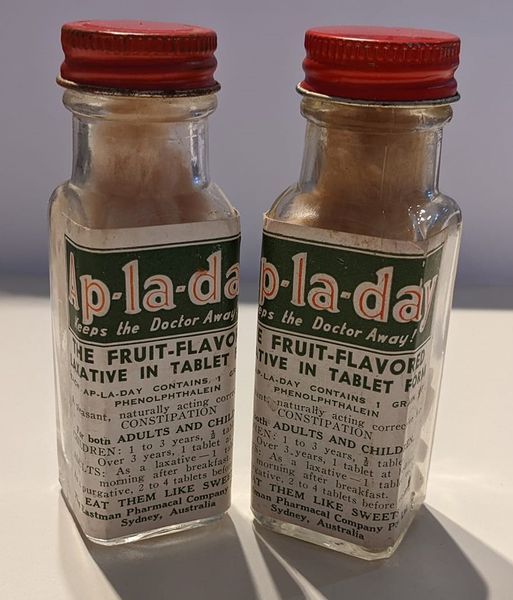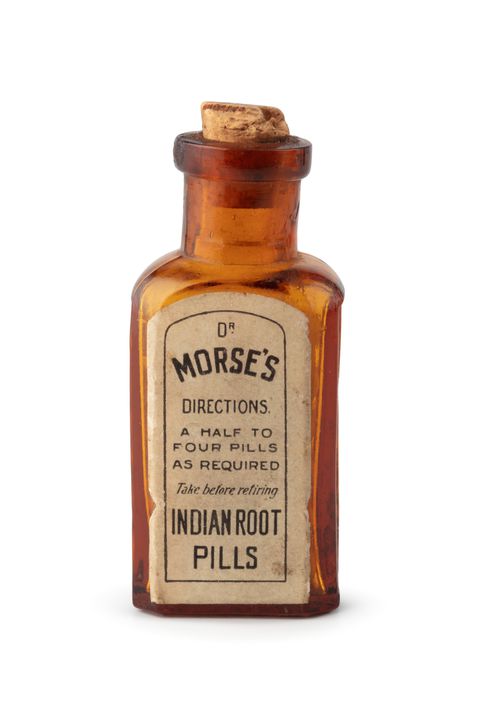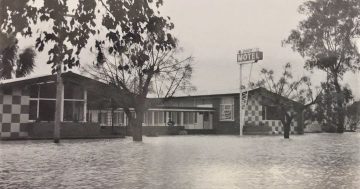
One hundred years ago, Europeans were obsessed with their bowels and gobbled down laxatives “like sweets”. Photo: Museum of the Riverina (pharmaceutical collection).
Have you heard the saying, ‘An apple a day keeps the doctor away’?
Well, in 1944, if you were suffering from constipation, you could get your ‘apple’ in tablet form.
The rather cleverly named ‘Ap-la-day’ tablets were a fruit-flavoured laxative manufactured by The Eastman Pharmacal Company Pty Ltd, Sydney.
The tablets contained phenolphthalein, a chemical compound used for over a century as a laxative but was later removed because of a risk of carcinogenicity (causing cancer).
The early part of the 20th century was something of a golden age for laxative manufacturers as Europeans became obsessed with moving their bowels (too much white bread perhaps!).
The pages of newspapers from back in the day are full of advertisements for phenolphthalein products, terrorising the population into scoffing down daily doses of sweetened laxatives and making sure their kids were pooping daily.
Rather alarmingly, the Ap-la-day label encouraged the patient to ‘EAT THEM LIKE SWEETS!’

Dr Morse Indian Root Pills were apparently popular with constipated gentlemen in Wagga. Photo: Powerhouse Collection.
Another product that was apparently popular in Wagga at the time was the American brand ‘Dr. Morse’s Indian Root Pills’, the “overnight laxative with the tonic action”.
A popular newspaper advertisement includes a quote from “Mr James Miller, Edward Street, Wagga, NSW” who was not only happy to include his name and address but chose to include his blocked-up mates.
“This obstinate complaint caused me a good deal of worry, until I commenced using Dr Morse’s Indian Root Pills. I wish to testify that I consider there are no pills equal in efficacy to your great remedy, for the satisfactory relief of constipation,” he declared in a letter of “praise” to the fictitious doctor, and it seems bowel movements were a popular topic of conversation among the men in town.
“I cannot afford to be without them and consequently have a good word to say for them to all sufferers from constipation. I know many gentlemen in Wagga using Dr Morse’s Indian Root Pills who speak in accord with my views.”
Dr Morse’s pills were sold in Australia until the mid-1990s.
Over the counter laxative products formerly containing phenolphthalein have been reformulated and now contain a senna extract.
In addition to being used for its laxative properties, phenolphthalein was also used in toys, for example as a component in disappearing inks.
Curiously, in 1950, it seems there was also a Wagga greyhound named Ap-la-day who was victorious in both the Weir Stakes and the Hume Stakes.









